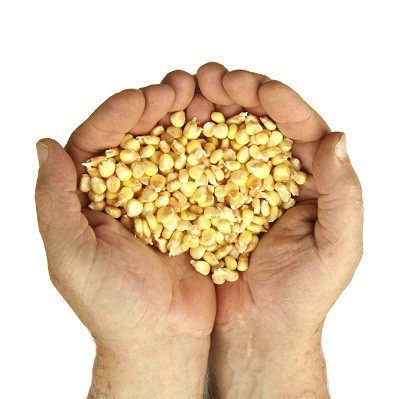After our first two posts about the remnant, we still have this question: What are some of the characteristics of a remnant people?
First, they are a people who hope in the future. They are oriented to the future, not the past. They are not looking backwards to a golden age now gone. They are not focusing on “what might have been.”
Their present is focused on what God expects them to do and what he promises he will do. 2 Chronicles 7:14 is the reminder of God’s expectation: “If my people, who are called by my name, will humble themselves and pray and seek my face and turn from their wicked ways, then I will hear from heaven, and I will forgive their sin and will heal their land.”
Note, this is a promise – “I will hear, forgive and heal their land,” based on a condition – “If my people will humble themselves, pray, seek my face, and turn from their wicked ways, then I will … .” God’s action is predicated on the obedience of his people. The people of God must continue to worship their Creator, and think and act as Christians.
 Second, the remnant is the “seed corn” for the future crop, the source of the recovery of the larger community. They are like “the root of Jesse” Isaiah writes about, “Then a shoot will spring from the stem of Jesse, and a branch from his roots will bear fruit” (11:1). From the stump of the tree, new life will come.
Second, the remnant is the “seed corn” for the future crop, the source of the recovery of the larger community. They are like “the root of Jesse” Isaiah writes about, “Then a shoot will spring from the stem of Jesse, and a branch from his roots will bear fruit” (11:1). From the stump of the tree, new life will come.
While God’s righteous judgment may fall on a people like it did on Israel and Judah, the judgment does not make God’s promise null and void. He will fulfill his promise through the remnant of the people.
The remnant are the conveyors of God’s promises to the nation. God is faithful. The unfaithfulness of God’s people does not mean the promise of God is void. He will invest the fulfillment of the promise in the remnant. Romans 11:16: “If the part of the dough offered as first fruits is holy, then the whole batch is holy; if the root is holy, so are the branches.” Paul uses two metaphors. First, dough from one loaf is the starter for another. Second, the holy root of a tree will produce holy fruit.
Third, the remnant is world engaging, not world escaping. Jesus’ commission to the remnant is to disciple nations (Matt 28:18-20). We are not to hide in caves or seek to flee the world. We are to be in the world, but not of the world, not of the world’s system. We are to be living within and functioning from the counter-cultural position of the kingdom of God (John 17: 20-23).
Fourth, the remnant is to conserve those things that matter most, strengthening the basic institutions of society – marriage, family, and community. The first institution is marriage. It is the foundation for any society. We need to work for healthy covenantal relationships. Starting with our own marriages, we need to create a climate within the church and larger community in which covenantal marriage can flourish.
Related to this is the family. Too often parents have sacrificed what matters most—their children—for things. To have more and better things, and have them now, both parents must work outside the home. If the family is also heavily involved in church, children are often left “fatherless,” or “motherless.” Children (and extended family members) need to be afforded the time and attention they deserve. We must put the things that matter most, our children and families, ahead of the things that we desire that matter so little.
We were made for relationships. After the most fundamental relationship of marriage and family, the community also needs to be nourished and conserved. This can begin with the church and synagogue and extended to the surrounding community. This includes encouraging volunteerism, the formation of “little platoons” to help solve problems in civil society.
Fifth, the remnant is to be visionary, casting a vision of the coming kingdom of God that is worthy of living for and dying for. We have been made for the kingdom of God. Our lives flourish when we live, today, in the reality of the fullness of the coming kingdom. Part of what this means is that the remnant seeks to manifest “thy kingdom come”–Truth, Beauty, and Goodness–in the midst of their life and work. We are to create spaces that are beautiful, wholesome and inviting.
Sixth, the remnant understands that change in society comes from the inside out and from the bottom up. Change does not begin with the government or the elites in society. It begins with the individual practicing internal self-government, taking responsibility for their own actions. As Leo Tolstoy summarizes, “Everyone thinks of changing the world, but no one thinks of changing himself.”
While leadership is important in the remnant community, true leadership exhibits a servant’s heart. In other words, the movement is not just from the inside out, it begins with grass roots and moves up. The movement may begin in the quiet of one’s own soul, but it is to move from the personal to the public, to the public square and the market place. The root of the Hebrew word for remnant indicates that we are the yeast in the loaf, the culture in the yogurt.
Seventh, the remnant is optimistic. While dark days may bring a people to a hinge in their history, the long view will always be optimistic. The remnant knows the “rest of the story,” the end of history. We know who won the battle that turned the tide of the war; it was Jesus Christ on the cross (Col. 2: 15). We know with certainty that Christ will return at the end of history with his glorious kingdom. The remnant knows in Whose hands they live and Who will bring to fulfillment the teleos – the end of history.
… to be continued
- Darrow Miller






